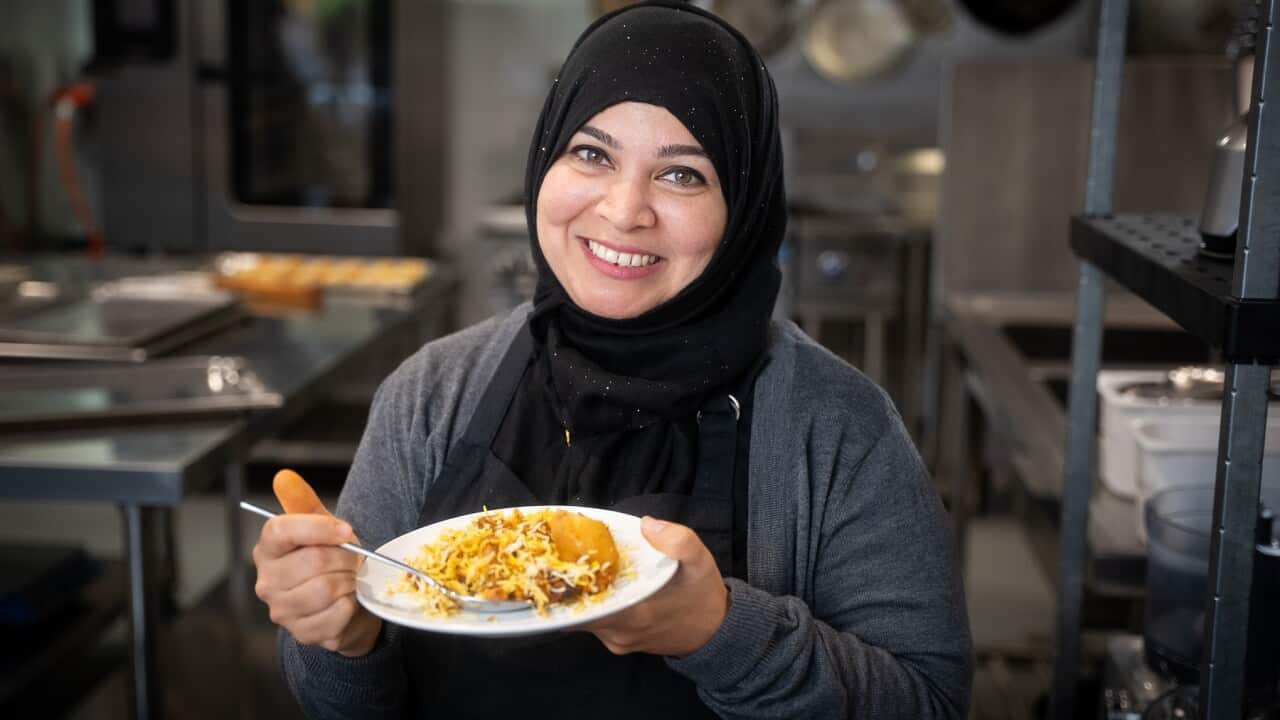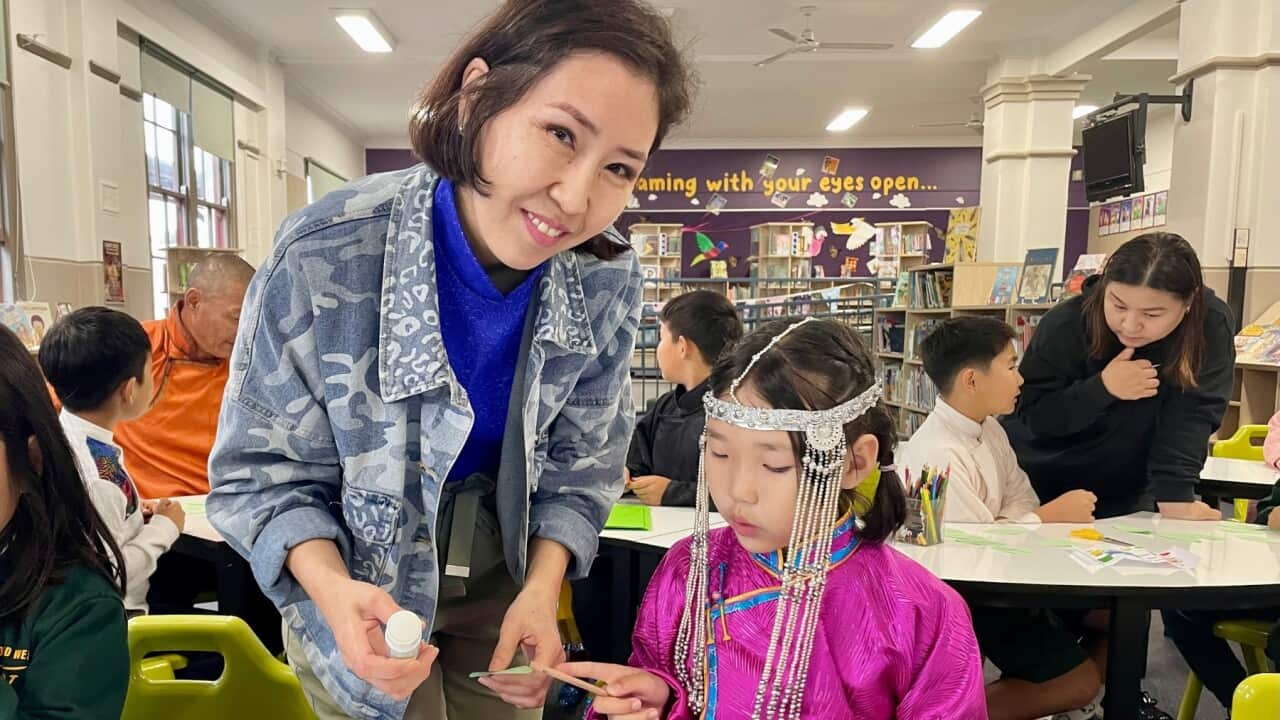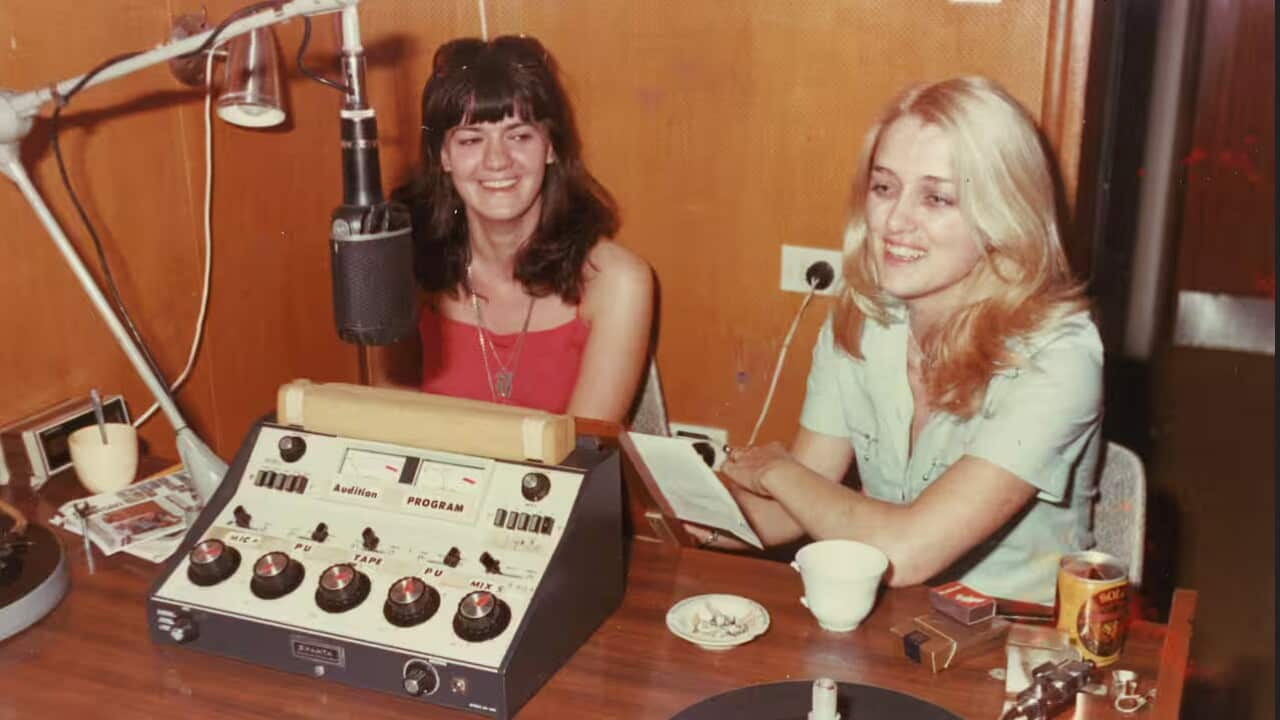TRANSCRIPT
Preparations for EID celebrating the end of the fasting month of Ramadan are underway across the world. And one commercial kitchen in Sydney’s west is a hive of activity.
Refugee Nadia Khan is at the stove stirring a spicy rice dish known as Biryani – popular in her homeland of Pakistan and made using a recipe handed down the generations.
“Grandmother made the Biryani, it's very nice and very delicious. Kids and older people love Biryani so she can teach me. And sometimes I have a problem so I can call because my grandmother is alive. It is very good for me.”
Ms Khan is 32 and her new business Aliana Catering and Cuisine is getting busier as orders for Eid pour in. She says the support of her husband is vital to her success.
“My husband, it's a very nice man, he is very loving man and I can make food for my husband. So, my husband says ‘no you're very good so you can start your own business’. So he back with me and I'm all strong.”
It’s a world away from her life growing up in Pakistan’s coastal city of Karachi. Despite graduating in commerce, Ms Khan says social and family pressure discouraged her from pursuing a career in her chosen field – a situation facing many women there.
“Majority, majority doesn't go for the job and not going for the education, not completing for the education also because family not allow. I am angry because I want to try to go outside and do the job, like this one, but I don't allow.”
It’s one reason Ms Khan migrated to Australia in 2016. The mother of two says since then her life – and her small business - have taken off.
“How proud I am. I'm more proud, more and more proud because I can fly, because the sky is here. So that's why I'm very proud for myself.”
Ms Khan is among 16 entrepreneurs working at a social enterprise kitchen called FoodLab Sydney. Backed by crowdfunding, the spacious modern facility in South Strathfield is home to a diverse range of chefs – according to managing director Jamie Loveday.
“This is a shared kitchen. People can come and book the space to rent for really affordable rates to grow their catering businesses or market stores or food products. We also have a training program, so we help entrepreneurs with advice, technical assistance, and expertise in all forms of business, from accounting to sales, and also menu design and costing.”
Those skills are crucial - with many business owners struggling to survive the current cost of living crisis. But Mr Loveday says migrants and refugees face other barriers, too.
“It is really difficult getting permits, the barriers of actually affording a commercial kitchen space as well as reading contracts and even translating contracts. So, all of these things amount to a really difficult industry to break into for people who are just starting out in the food industry. So, we try to lower those barriers to entry.”
“FoodLab actually started in 2020 at Sydney University. We started initially by just running training and workshops for people from really diverse backgrounds and teaching them those core business skills. But we eventually started to evolve into a larger mentoring program to have guest speakers from all over the food industry. That evolved again into a shared kitchen, which was opened in November last year. So, we really started to become this fully fledged culinary incubator, which is what we are today.”
Among those to benefit is Gayithri Sridhar who migrated from Fiji and whose ‘sweet treat’ business called Gaia Tree gives back to disadvantaged women.
“I'm making candied nuts today and the nuts are inspired by flavours of Fiji so the spices that I get from Fiji actually grown by marginalized women in Fiji. They're taught how to grow spices such as cinnamon, turmeric, and ginger. And then they onsell those spices to earn their income and support their families.”
Ms Sridhar says lower monthly rent for FoodLab’s kitchen and shared storage space helps her to grow the online business.
“So, this Food Lab Kitchen has been a godsend. Basically, I had a factory set up before this and it costs a lot of money and as a small business you don't have the cashflow that a bigger business would that could support paying rent every month. And so having Food Lab has really been helpful in that way.”
The number of participants is growing steadily. However, Mr Loveday hopes to help many more.
“We would love to grow beyond 16 entrepreneurs. Food is a byproduct of love. It is a love language that we can give to others. And food helps us to share our stories, to share our cultures. If there are people in Sydney who would love to start a food business and they are from diverse backgrounds and cultures and notice a gap in the market of their cuisines, this is the place for them.”
Racha Abou AlChamat is proud to share her Syrian culture, making date-filled pastries called Maamool for Eid celebrations.
She says the end of fasting is typically a busy time for Racha’s Syrian Kitchen.
“So usually the family get together, all of them at the end of Ramadan. So, it is very, usually it's very busy because people gather together, they don't like to work a lot. Anytime they just like to relax and then I can do my business!”
Entrepreneur Nadia Khan says the future for her biryani business looks bright.
“My goal I can make for the many branches in Australia yeah, big restaurant, big branch everywhere in Australia, everywhere in the world. This is my goal. Everyone say Nadia is a good chef.”













